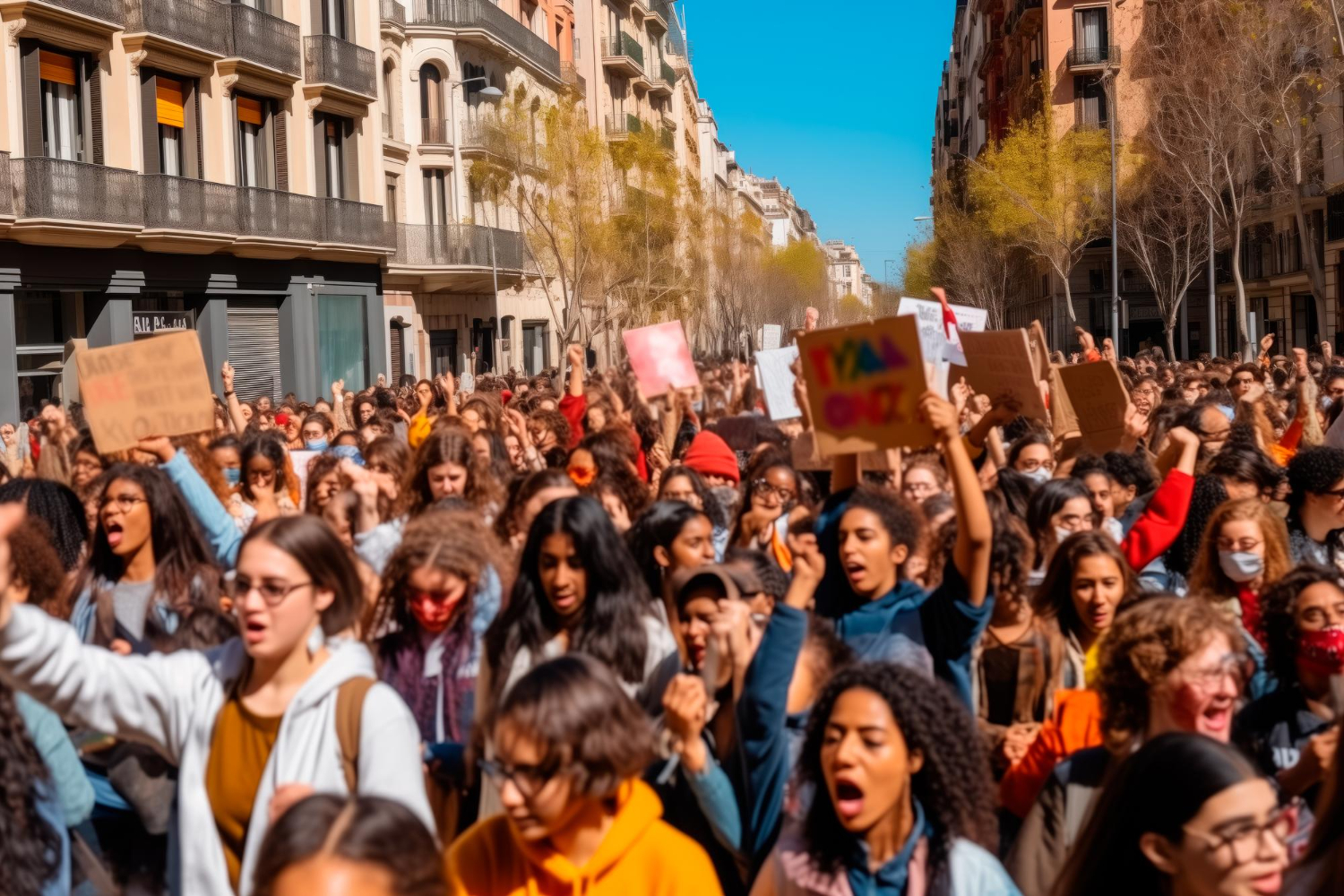Curious about the landmark Supreme Court case Citizens United v. FEC? Delve into the details and gain a comprehensive understanding of the ruling’s differences and implications. In 2010, the Supreme Court made a significant decision that overturned previous restrictions on corporate spending in elections. Explore the majority opinion, dissenting opinions, and the impact on campaign finance regulations. Learn how the Court affirmed the First Amendment’s protection of political speech and transparency while remanding the case for further proceedings.
Background and BCRA Provisions
In the case of Citizens United v FEC, the background and BCRA provisions set the stage for a landmark legal battle over the limits of corporate and union contributions and expenditures in electioneering communications. The Bipartisan Campaign Reform Act (BCRA) expanded the ban on corporate and union contributions and expenditures, including a ban on electioneering communications paid for with corporate or union general treasury funds. Citizens United, a conservative lobbying group, claimed that their film, ‘Hillary: The Movie,’ did not meet the definition of an electioneering communication. They argued that the disclosure statements and identification of sponsors were unconstitutional. However, the district court ruled against Citizens United on all counts, finding the film to be an electioneering communication and upholding the constitutionality of the disclosure and identification provisions.
The Supreme Court, in a 5-4 decision, granted a writ of certiorari and ruled in favor of Citizens United. The majority opinion held that the ban on corporate and union electioneering communications violated the First Amendment. The court recognized corporations’ constitutional right to speak and rejected the idea of assigning different free-speech rights based on identity. They found no compelling state interest to justify the ban and argued that independent expenditures do not lead to corruption. The court also upheld the constitutionality of the disclosure and identification requirements.
The impact of the decision was significant. It overturned previous cases, Austin and McConnell, and protected corporations’ voices and viewpoints, allowing them to reach the public. Nonprofit and for-profit corporations’ political speech was now protected, and lower-court rulings on the constitutionality of disclosure requirements were based on this decision. Overall, the Citizens United v FEC ruling had a profound impact on campaign finance laws and the role of corporations in elections.
Citizens United’s Claims and District Court Ruling
Analyzing Citizens United’s claims and the district court ruling, you’ll find that the court ruled against Citizens United on all counts, finding their film to be an electioneering communication and upholding the constitutionality of the disclosure and identification provisions.
- Citizens United argued that their film did not meet the definition of an electioneering communication. They contended that the disclosure statements and identification of sponsors required by the Bipartisan Campaign Reform Act (BCRA) were unconstitutional.
- The district court, however, disagreed with Citizens United’s arguments. It ruled that the film indeed fell under the definition of an electioneering communication, which referred to any broadcast, cable, or satellite communication that mentioned a candidate. The court also found the disclosure and identification provisions to be constitutional, as they aimed to promote transparency in political spending.
Majority Opinion and Supreme Court Ruling
Examining the majority opinion and Supreme Court ruling in Citizens United v FEC, you will find that the court held that the ban on corporate and union electioneering communications violated the First Amendment. The court determined that political speech, including corporate expenditures, is protected by the First Amendment and that government restrictions on such speech are subject to strict scrutiny. The majority opinion emphasized the importance of transparency in the political process, stating that disclosure requirements are constitutional and help to ensure that the public is informed about the sources of campaign funding. However, the court found that the ban on corporate and union electioneering communications went beyond what is necessary to achieve transparency and prevent corruption. The court argued that independent expenditures do not lead to corruption and that shareholders’ interests are protected by corporate democracy. In reaching its decision, the court overturned previous Supreme Court rulings and recognized corporations’ constitutional right to engage in political speech.
Impact of the Decision
The decision in Citizens United v FEC had a significant impact on the landscape of campaign finance laws in the United States. Here are some key points regarding the impact of the decision:
- Political speech protection: The decision upheld the First Amendment rights of corporations and unions to engage in political speech. It recognized that these entities have the same constitutional right to speak as individuals.
- Corporate influence: The decision opened the door for increased corporate influence in elections. By allowing corporations to spend unlimited amounts of money on independent expenditures, the decision gave them greater ability to shape the political discourse and influence the outcome of elections.
- Campaign finance reform: The decision dealt a blow to campaign finance reform efforts. It invalidated provisions of the Bipartisan Campaign Reform Act (BCRA) that restricted corporate-funded electioneering communications. This undermined the efforts to regulate the flow of money in politics and limit the influence of special interests.
- Transparency and disclosure: Despite upholding the constitutionality of disclosure and identification requirements, the decision had a mixed impact on transparency. On one hand, it recognized the importance of transparency in the political process. On the other hand, it allowed for the creation of “dark money” groups that can spend unlimited amounts of money without disclosing their donors, thus undermining transparency.
Additional Opinions
In the case of Citizens United v FEC, there were additional opinions expressed by the justices of the Supreme Court. One of the additional opinions was a critique of the dissenting opinion written by Justice Clarence Thomas. This critique highlighted the constitutional implications of the majority opinion and its impact on free speech protections. It argued that the court’s interpretation of the First Amendment, which protected corporations’ right to political speech, had significant consequences for the influence of corporate interests in elections. The critique also questioned the judicial interpretation of the First Amendment, suggesting that the court’s decision prioritized the rights of corporations over the democratic process. It raised concerns about the potential for corporate influence to undermine the integrity of elections and the ability of citizens to make informed decisions. Overall, these additional opinions provided a deeper analysis of the Citizens United decision and its broader implications for campaign finance and political speech.
Case Details and Analysis
Start by providing a brief overview of the case details and analysis. The case of Citizens United v FEC began when Citizens United, a conservative lobbying group, sought to distribute their documentary ‘Hillary: The Movie’ and advertise it on television. The Bipartisan Campaign Reform Act (BCRA) included provisions that restricted corporate-funded electioneering communications. Citizens United argued that their film did not meet the definition of an electioneering communication and challenged the constitutionality of the BCRA provisions. The district court ruled against Citizens United, finding their film to be an electioneering communication and upholding the constitutionality of the disclosure and identification provisions. However, the Supreme Court granted certiorari and reversed the district court’s ruling. In the majority opinion, the Supreme Court held that the ban on corporate and union electioneering communications violated the First Amendment. They recognized corporations’ constitutional right to speak and rejected the idea of assigning different free-speech rights based on identity. The court found no compelling state interest to justify the ban and upheld the constitutionality of disclosure and identification requirements. The decision had a significant impact as it overturned previous cases and protected corporations’ voices and viewpoints in the public sphere. Justice Clarence Thomas wrote a dissenting opinion expressing concerns about the role of corporate interests in elections and the impact on free expression. The case was remanded to the district court for further proceedings.




